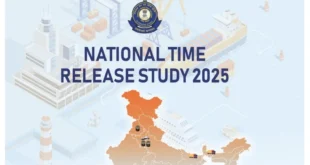India cannot claim the moral high ground any more that it has kept the State’s integrity intact
Without going into the moral and legal arguments for or against the scrapping of the special status to Jammu and Kashmir and the decision to reorganise the State into two Union Territories (UTs), a dispassionate analysis of the possible immediate implications of these constitutional changes is needed. Some assertions in support of the changes may partially be true while others may run contrary to the facts.
The implicit claim that this would lead to greater counterterrorism preparedness is questionable. The strength of any counterinsurgency grid is largely based on human intelligence coming from the ground. Here, it will be unrealistic to expect that merely changing the administrative and political set-up of the State will lead to more intelligence to the security apparatus; in fact, there is a high possibility of the contrary happening in the short-term on account of the decision’s unpopularity in the Kashmir Valley. India needs to be mindful of the fact that historically, any spike in disaffection in Jammu and Kashmir has facilitated a misadventure by Pakistan. For instance, the maximum dilution of Article 370 took place in the 1960s, including changes concerning the nomenclature of the ‘head of the State’. And this was followed by the infamous ‘Operation Gibraltar’ by Pakistani President Ayub Khan in August 1965.
A self-defeating strategy
The present cycle of violence can be traced back to the rigging of the 1987 Assembly elections and, in this connection, Home Minister Amit Shah is right in citing rigging of successive elections as the primary cause of the mistrust of Kashmiris towards India. But in bringing the State directly under the Centre as a Union Territory, the government may have overlooked the hard lessons learned by India’s intelligence in its nearly 30 years of counterinsurgency operations — relying purely on militaristic tools can be self-defeating.
Further, bifurcating the State and creating a Union Territory of Ladakh mirrors what Pakistan did with Gilgit and Baltistan regions by de facto creating a separate province in 2009. New Delhi has often objected to the Chinese infrastructural projects in the region and also opposed Islamabad’s decision to separate it from the rest of Pakistan-occupied Kashmir. Now, after stripping Jammu and Kashmir of its special status, India cannot claim the moral high ground any more by pointing out unlike Pakistan, it kept the integrity of the State intact. Mr. Shah made a valid point when he said that political reservation, as enshrined in the Indian Constitution, has been denied to Scheduled Tribes in Jammu and Kashmir even though all political parties have suitably accommodated them in other ways. In the past, there had been several Bills in the Jammu and Kashmir Assembly for political reservation but they were never passed. Around 11.91% of the State’s population is made of Scheduled Tribes, the bulk of them from Gujjar and Bakarwal tribes. Extending political reservation to them will make the State’s political structure more inclusive.
However, Mr. Shah’s claim of widespread poverty in the State, cited as one of the justifications for Monday’s decision, is not backed by facts. Only 10.35% of the State’s population lives below the poverty line, compared to the national average of 21.92%. It needs to be noted that though restrictions on land sale existed, successive State governments had been, on an ad hoc basis, liberally giving land to non-state investors on 99-year leases. Monday’s decision on paper has removed all impediments on sale of land but, in the short term, could lead to an increase in private investment only in Jammu. A prolonged period of peace is needed in other parts of the State to attract investment. Monday’s move has also removed another impediment — children born to women marrying citizens from outside Jammu and Kashmir can now inherit property.
Further, descendants of Partition refugees who migrated from Sialkot, many of whom belong to Scheduled Castes, will now be able to get employment, buy and own land and vote in the new Union Territory.
What also needs to be considered is that bifurcation of Jammu and Kashmir may trigger demands for further division of the State which, unless they are categorically rejected, could trigger a long period of instability and turbulence. Separation of ethnically and culturally distinct Ladakh from the rest of Jammu and Kashmir is somewhat less challenging, because of its relatively smaller population. And what about the right to return of Kashmiri Pandits? Monday’s decision is unlikely to alter their present status as the security environment in the Valley is currently not conducive for them to go back.
On the whole, the country needs to be better informed of the implications of the changes on the ground. The road to resolution of the Jammu and Kashmir tangle lies in bringing the policymaking closer to facts, learning from the past and avoiding unrealistic expectations.
Check Also
Biofuels and the Food vs. Feed Dilemma
GS3 – Environment Context India’s growing emphasis on biofuels is raising alarm over the diversion …
 Chinmaya IAS Academy – Current Affairs Chinmaya IAS Academy – Current Affairs
Chinmaya IAS Academy – Current Affairs Chinmaya IAS Academy – Current Affairs


